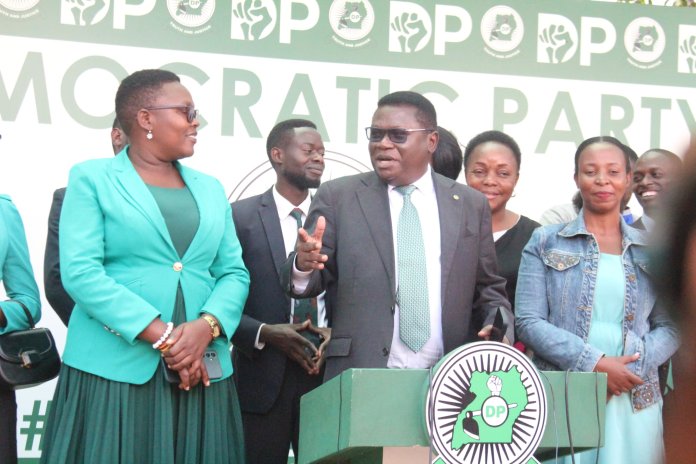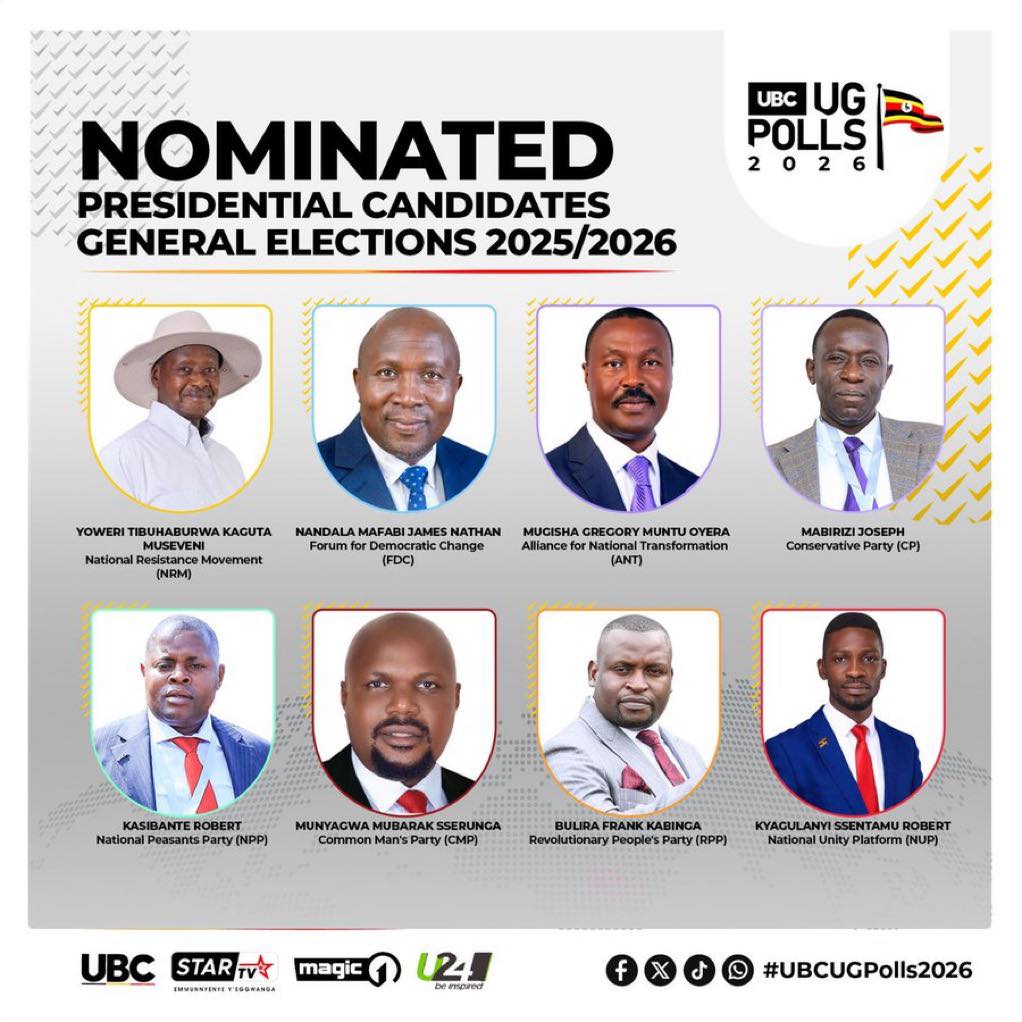As President Museveni and other candidates have been officially nominated, Uganda’s 2026 presidential race is now underway. The incumbent, Yoweri Tibuhaburwa Kaguta Museveni, who has led the country since 1986, is seeking a seventh term. He faces seven challengers: Nandala Mafabi James Nathan (Forum for Democratic Change), Mugisha Gregory Muntu Oyera (Alliance for National Transformation), Mabirizi Joseph (Conservative Party), Kasibante Robert (National Peasant Party), Mubarak Munyagwa Sserunga (Common Man’s Party), Bulira Frank Kabinga (Revolutionary People’s Party), and Kyagulanyi Robert Ssentamu (National Unity Platform).
Uganda has never experienced a peaceful transfer of power. The country emerged from decades of violence in the 1970s and 1980s and suffered through the massacres of the 1990s under Joseph Kony and the Lord’s Resistance Army. In recent years, Uganda has been in the international spotlight for human rights concerns, including restrictions on opposition activity, harassment of journalists, and violent crackdowns on protests. The 2021 elections were particularly tense, with reports of killings, beatings, arrests, internet shutdowns, and restrictions on media and civil society groups, underscoring the persistent challenges around fair and free elections.
Since its founding in 2022, Factjaja has not directly monitored elections but has conducted in-depth studies and investigations into electoral manipulation. Our research has revealed the tactics and actors spreading misinformation and has offered guidance to communities on recognizing and countering these practices. Today, we are seeing a new trend: information manipulation has become more sophisticated, often designed to divide communities in ways that are increasingly hard to detect. This evolving dynamic is expected to play a significant role in shaping public perception and trust during the upcoming elections, with the potential to create confusion and fuel discord.
Human Rights Watch has noted that in the lead-up to the 2021 elections, violence and human rights violations were widespread. Security forces were implicated in killings, arrests, and beatings of opposition supporters and journalists. Opposition rallies were disrupted, and civil society organisations faced harassment. Presidential candidates and their supporters were frequently targeted, highlighting systemic restrictions on political freedom and democratic participation.

In the midst of these concerns, Norbert Mao, the Minister of Justice and National Guidance and a member of the Democratic Party serving in the current NRM government, has assured Ugandans that the 2026–2031 elections are expected to be peaceful. However, many citizens remain skeptical, questioning whether the justice minister is truly independent or acting as a mole of the regime.
As Uganda heads toward the polls, the challenge will be ensuring that the process is transparent, safe, and trusted by all Ugandans, so that the country can move closer to the long-awaited peaceful transfer of power.
By: Adolph Muhumuza








